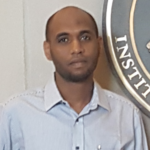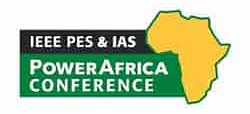Panel: Why is the Level of Illiteracy in sub-Saharan Africa so high?
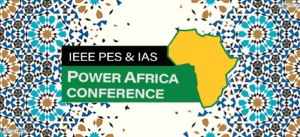
Summary:
To raise awareness and understand how conference attendees can contribute to an urgent, major overhaul of education in sub-Saharan Africa, the Education Committee of the IEEE Smart Village Africa Working Group proposed this panel. After working to increase literacy for over two decades, UNESCO reports that worldwide 763 million people remain illiterate. Of these, the largest proportion live in sub-Saharan Africa where 33% of adults aged 15 and above can barely read or write. Population projections predict that this region will be home to 40% of the global total by the end of the
century. With the youngest demographic, Africa will dominate design and manufacture and be responsible for a viable infrastructure able to provide food, water, energy and healthcare to itself and an otherwise aging population all while combating climate change. Without access to high quality education, Africa will be unable to fulfil this role, raising critical questions about the future of humankind. Although the current rate of illiteracy may be attributed to lack of electricity, many factors contribute to the uneven delivery of poor-quality education. Large regions are beset by war, poverty, lack of education, fear, and corruption. Illiteracy itself has a significant impact on the availability of high-quality teachers. To this already complex mix add culture,
religion, gender, region/environment, resources, and the impact of widespread civil and political unrest, and poor governance.
The discussion will focus on What is education—is there a universal definition? What are the key components of culture/gender, religion, the region/environment, and available resources that control the provision and delivery of education across Africa? What is the impact of local and federal governments? Why is sub-Saharan Africa so far behind North and South Africa? What do you need to deliver high quality education in impoverished urban and rural environments? Does education displace culture—should they be separate entities?
Moderator
Salamatu Sani (Senior Electrical Estimator, Elektrint Nigeria Limited)
Panelists
- Rajan Kapur (President, IEEE Smart Village, USA)
- Muhammad Buhari (Senior Lecturer, Bayero University, Nigeria)
- Toby Cumberbatch (Professor Emeritus, The Cooper Union, USA)
Miss. Salamatu Sani, ME
——————-

Date: d xxrd , 2023
Biography:
Miss. Salamatu Sani, ME, has a Master of Engineering in Electrical and Electronics Engineering (Power systems and Machines) from
Abubakar Tafawa Balewa University Bauchi in Nigeria. She is currently a Senior Electrical Estimator with Elektrint Nigeria Limited in Lagos. For the past ten years she has worked in the Manufacturing and Construction industry gaining experience in industrial engineering,
plant maintenance & planning, project management, energy management, R & D, material management, sustainability development, amongst others.
As an IEEE volunteer, Salamatu is active the IEEE Smart Village (ISV), IEEE Women in Engineering, and IEEE Future Directions groups. Currently co-chair of the ISV Africa Working Group Education Committee, she also contributes to project monitoring, conference coordination and planning. Salamatu strongly believes in using her knowledge and expertise to help others realize their full potential. More info can be found on her LinkedIn page.
Dr. Rajan Kapur
——————-
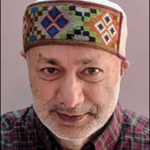
Date: d xxrd , 2023
Biography:
Dr. Rajan Kapur started his career at AT&T Bell Labs. Since 1985 he has worked exclusively with start-ups, first with micro-chips in the
Silicon Valley, and then micro-displays in Colorado. In 2006, he transitioned to renewable energy and founded a solar micro-inverter
company that he later sold. Since then, he has run a sustainability incubator in his garage in Colorado, working with small dispersed teams on early-stage projects, with participants from the US and abroad.
In the leadership team at IEEE Smart Village, an all-volunteer humanitarian seed-fund cum incubator, he works with local entities in underserved regions around the world. They leverage productive use of IEEE technologies, education and enterprise to improve livelihoods. Current enterprises include eco-tourism in India, gemstone cutting in Zambia, electrification to combat deforestation in Argentina, peri-urban aquaculture in Malawi and India, etc. Working with Rotary International, IEEE Smart Village has funded telehealth projects in Uganda and Kenya, and an oxygen plant at a hospital in India. Under his leadership, they have started “vocational awareness” initiatives for children to better prepare for a more electrified future.
Dr. Kapur is the holder of five issued US patents. He holds Electrical Engineering degrees from the
Indian Institute of Technology, Kanpur; Rice University, Houston and the University of Texas at Austin.
Dr. Toby Cumberbatch
——————-
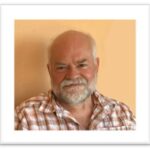
Date: d xxrd , 2023
Biography:
Dr. Toby Cumberbatch was professor of Electrical Engineering at The Cooper Union in New York City from 1994 to 2018. His principal research interests were developing engineering practices to address the needs of forgotten, marginalized, impoverished communities. In 2003 he took his first group of students to villages in West Africa to learn about energy, water, and shelter in extreme resource constrained environments. From these trips and other classes emerged SociaLite Lighting Systems, a small nonprofit that manufactures and installs pico-grids and lighting systems in impoverished communities. From this emerged an engineering design methodology that delivers engineering solutions able to withstand the harshest climate, environmental and operating conditions—engineering for the middle of nowhere needs to be the best in the world.
Dr. Cumberbatch, now retired, continues to light, and advocate for, these communities, and frequently lectures on the topic. He is Chair of the ISV Africa Working Group Education Committee and Chair of the IEEE Let’s Make Light Competition
Dr. Muhammad Buhar
——————-
